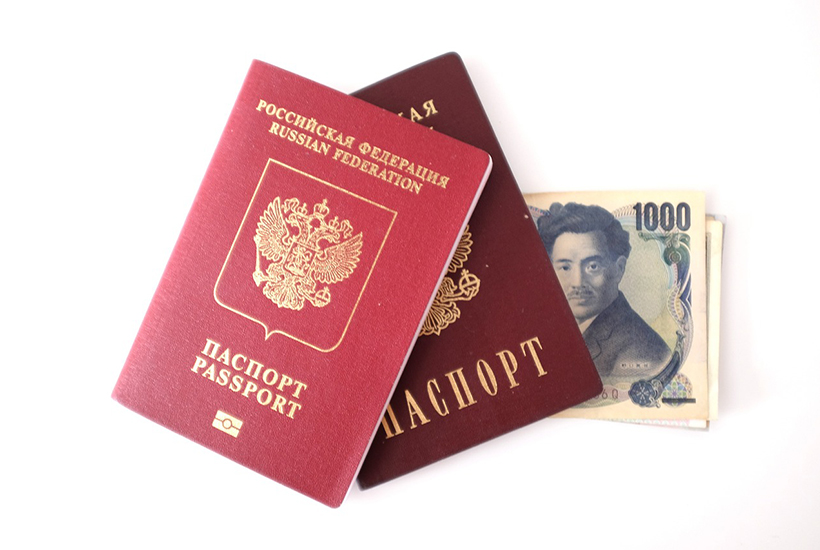How to make a power of attorney abroad, check out of an apartment, transfer money for it and other difficulties

Last year there was a massive outflow of Russians from the country. In January-November 2022, 622.9 thousand people left, which is 2.7 times more than in the same period of 2021, follows from the Rosstat report on the socio-economic situation of the country. Apartments, the owners of which were no longer in Russia, began to actively enter the secondary market of the Russian Federation. In 2022, the share of home sales by proxy, as Kommersant reported, reached a record 50%. A year earlier, it did not exceed 20%. However, cross-border transactions are complicated both by the administrative practice of the authorities of our country and by sanctions. Experts of the Elitnoye.ru portal, using data from the Metrium company, decided to talk about the five most common difficulties faced by apartment owners who left Russia.
1. Issuing a power of attorney abroad
Some people who left the country issued a power of attorney in advance so that the attorney could conduct real estate transactions in Russia. For the rest, there are only two options. A power of attorney can be made through the Russian consulate in the host country or at a local notary. The consulate issues a power of attorney, similar in legal force and no different from that certified by a notary in Russia. The applicant only needs to present his passport and the passport details of the attorney, whose presence is not required. But you can make an appointment only a few months in advance, especially in countries where there are many visitors from Russia, as well as in countries where the number of consulates or diplomatic workers has been reduced. In some, for example, in Georgia, the Russian embassy does not work at all.

The second way is more problematic. Rosreestr checks the power of attorney of consulates against the online database of these documents. But it is almost impossible to verify the authenticity of documents of foreign notaries. The content of the translated document is not always correct either. For example, in the USA, notaries certify only the signatures of the principal and the translator. An additional check by law enforcement officers of various countries can continue indefinitely, and requests from the Russian Federation can be ignored. All this increases the risks for the homebuyer and creates more difficulties for the seller. Sometimes a power of attorney from a foreign notary must not only be translated into Russian, but also certified at the consulate. If Russia does not have an agreement with this country that cancels the mandatory legalization of documents, and the state is not a party to the Hague Convention of 1961, consular legalization of a power of attorney is required.
2. Remote check out from the apartment
The next difficulty is related to deregistration at the place of residence in Russia. This can be done remotely, again by issuing a power of attorney. An application for deregistration must be certified at the consulate of the Russian Federation. Then the documents are sent by mail to a trusted person in Russia. The document should contain specific language with detailed specific authorities and actions. If you write that you trust to perform any actions on your behalf in the authorized bodies, then the application from the attorney may not be accepted. It is more difficult to discharge minor children from the apartment, because this cannot be done “to nowhere”. Guardianship authorities may require many confirmations that the child will not be left homeless, including abroad.

Also in the passport, according to the rules of registration and administrative regulations of the Ministry of Internal Affairs, they must put a stamp on deregistration. It is convenient to send a passport to Russia by registered valuable mail. It is more difficult to get it back, since a third party (not the owner of a passport or a close relative) may be denied shipment by the customs authorities.
3. Double tax when selling an apartment for non-residents
The Russians who left when selling apartments in their homeland faced an increased tax (personal income tax). According to the tax legislation of Russia, a citizen who stays outside the country for more than 181 days automatically loses the status of a tax resident of the Russian Federation. And then the tax on income received in Russia grows from 13% to 30%. That is, when selling a home, you will have to pay almost a third of its cost. This applies only to those owners who have owned real estate for less than five or less than three years in certain cases provided for by the tax code.
4. Money transfers are very difficult
Another problem is related to the difficulty of transferring significant amounts of money from the Russian Federation due to sanctions and restrictions. By law, real estate transactions must be settled within the country. After receiving payment, it will be very difficult for the former owner of the apartment to transfer funds abroad. Basically, the disconnection of the majority of Russian banks from SWIFT creates difficulties. The remaining credit institutions in the country take a commission for such transfers. Therefore, it is necessary to transfer money through banks of “friendly” countries, which is associated with conversion in different currencies, often at an unfavorable rate. In addition, crypto-exchanges began to introduce restrictions against Russians, including setting limits on transactions or on the purchase of fiat and cryptocurrencies. You have to turn to intermediaries from Asia and other countries not participating in the sanctions, or to cryptocurrencies.

5. Difficulties with minor everyday issues
Many people who left Russia experience problems even with the smallest everyday issues, for example, taking meter readings to calculate the cost of housing and communal services. New buildings often have modern meters that automatically transmit data to management companies. However, older houses do not have such meters. If information is not transmitted, then tariffs are calculated according to standards that almost always exceed the actual level of consumption, which is why the final bills for services rise.
there is a channel in Telegram.
Subscribe!















